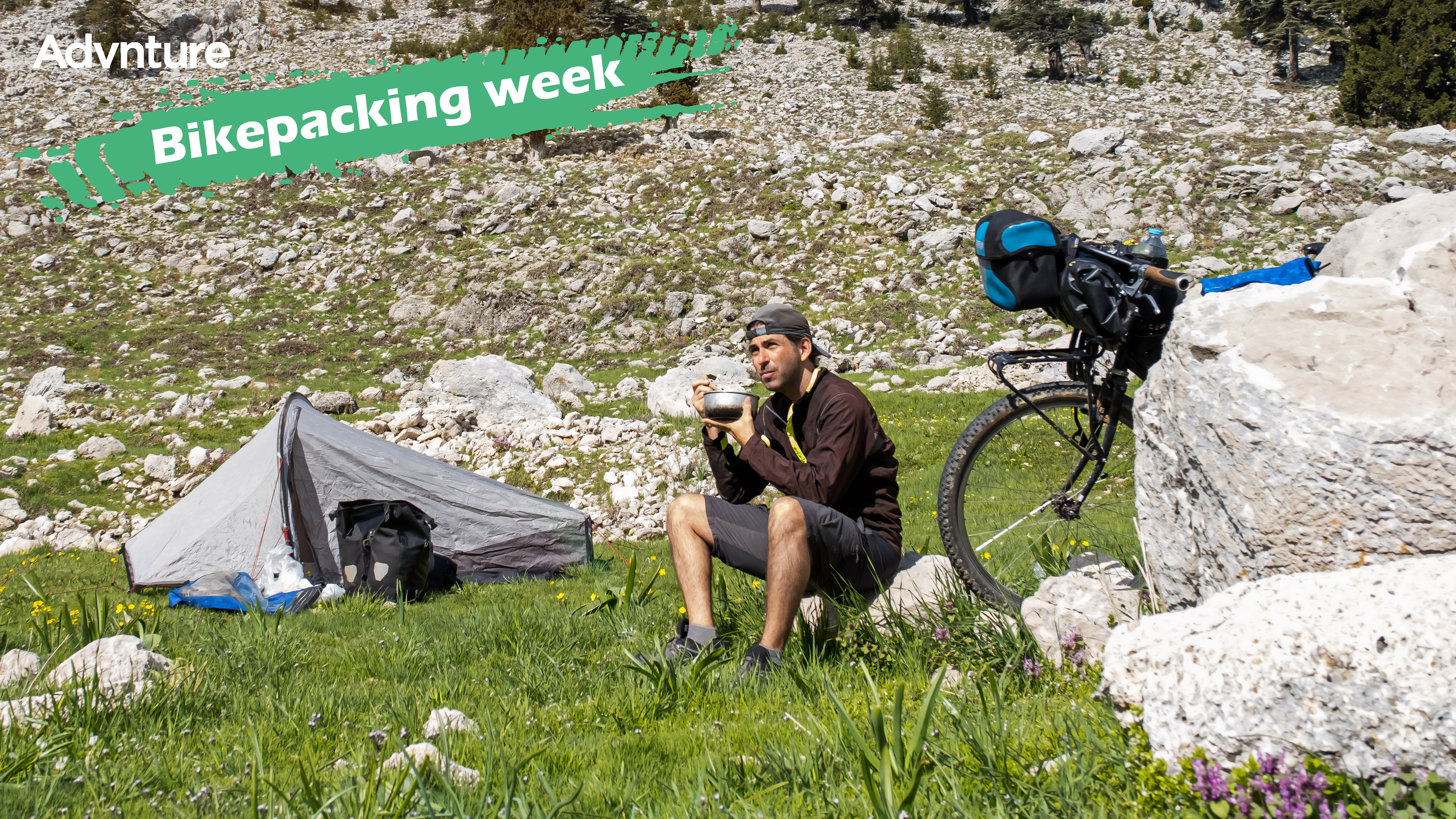
All the latest inspiration, tips and guides to help you plan your next Advnture!
You are now subscribed
Your newsletter sign-up was successful
Bikepacking is a wonderful way to explore, but to get the most out of the experience you'll want to travel as light as possible. Thankfully, there are lots of tricks to borrow from the world of ultralight backpacking, and they don't necessarily involve buying lots of super expensive gear made from gossamer-thin titanium and mesh.
Rather than trying to find lighter versions of everything you'd usually take camping, the idea is to pack smarter and make your existing gear work harder.
Everyone will have their own boundaries about which luxuries they're unwilling to part with (there's at least one serious bikepacker who refuses to travel without a string of fairy lights for their camp), but these five tips will help you get everything else down as small and light as possible.
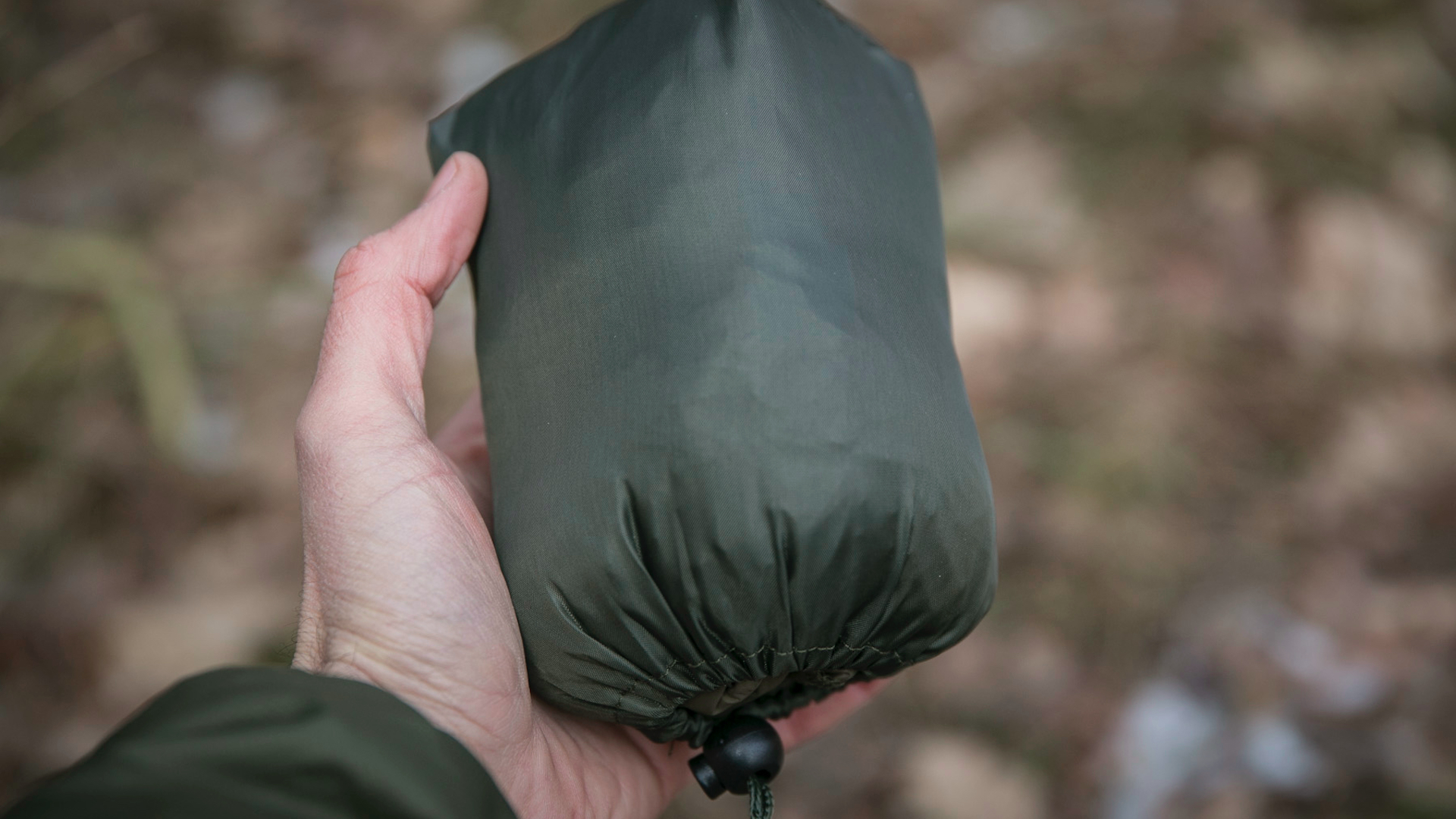
1. Ditch the tent for a bivy and tarp
A tent is a more pleasant place to spend the night, particularly if the weather's less than ideal, but a bivy sack will take a lot less space on your bike. If you're not familiar with the term, a bivy (short for bivouac) is essentially a weatherproof sack that covers your sleeping bag, and is about as minimalist as shelters can be. Some have hoops around the head end that can be pegged into the ground to allow you to move your head and make things a bit less confining.
You'll also want to bring a tarp to erect over the top so you don't wind up with a wet face if it rains (you could suffocate if you try to sleep fully enclosed) but it'll still take less space than a tent, and a poncho tarp will also keep you dry while you're pottering around camp.
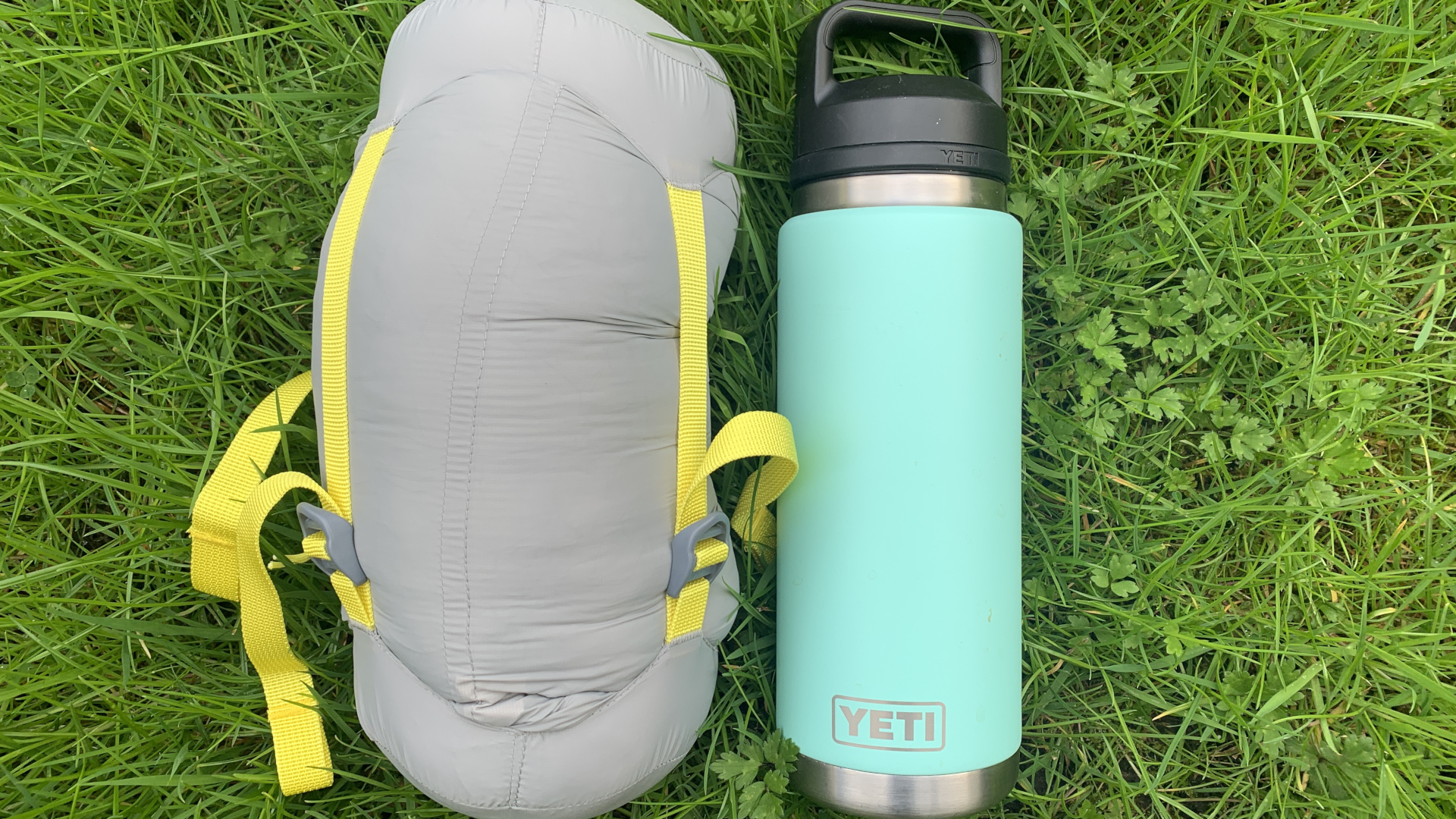
2. Try a camping blanket
Your sleeping bag will probably be one of the bulkiest things on your bike, but if you're bikepacking in summer you could trade it in for a lighter, more compact camping blanket. There's only one layer, no zipper and no hood, so there's much less to carry even if your blanket is the same thickness.
Provided you've got a sleeping mat of some sort to keep you off the ground, it can be surprisingly warm and comfortable, and if you happen to get too snug during the summer, you can easily sling out an arm or leg to act as a heat sink. One of our favorites, the 4Monster Lightweight Down Puffy Blanket, also doubles as a poncho for cool evenings.
All the latest inspiration, tips and guides to help you plan your next Advnture!
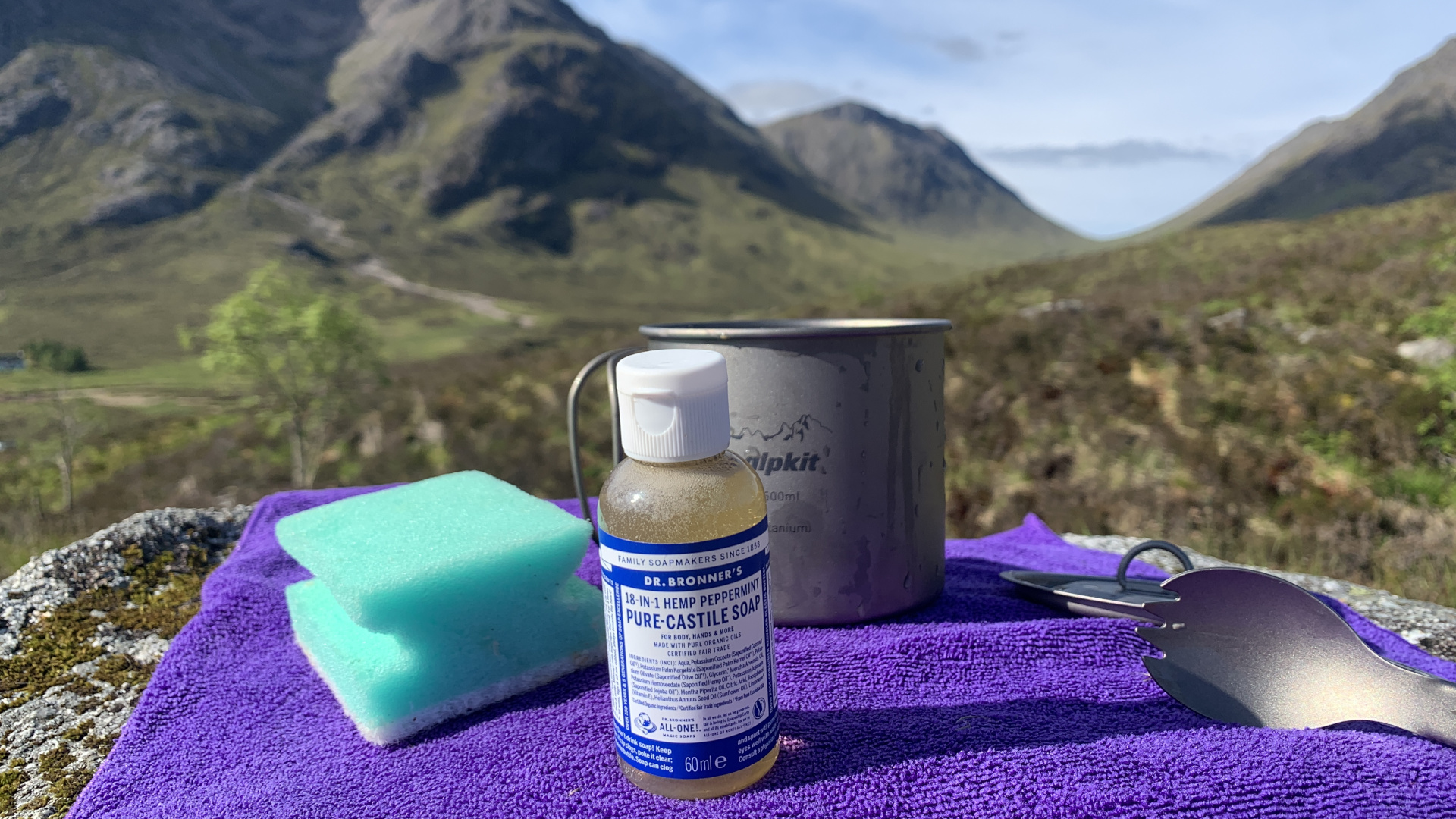
3. Think multifunctional
Another way to save weight is to make all your gear work harder. Rather than packing a camping bowl, eat directly from the pot you cooked your dinner in. Use your blanket or camping towel as a makeshift poncho in the evening. Roll up your sleeping pad and use it as a stool. You can even use your bike and a tarp to construct a shelter, which has the bonus of preventing it being stolen.
When it comes to toiletries, you can use Dr Bronner's castile soap for practically everything. You can clean yourself, do the dishes, shave (if you can be bothered), wash your underwear, and even brush your teeth with the stuff. We recommend choosing the mint version so it doesn't feel too strange, but it works.
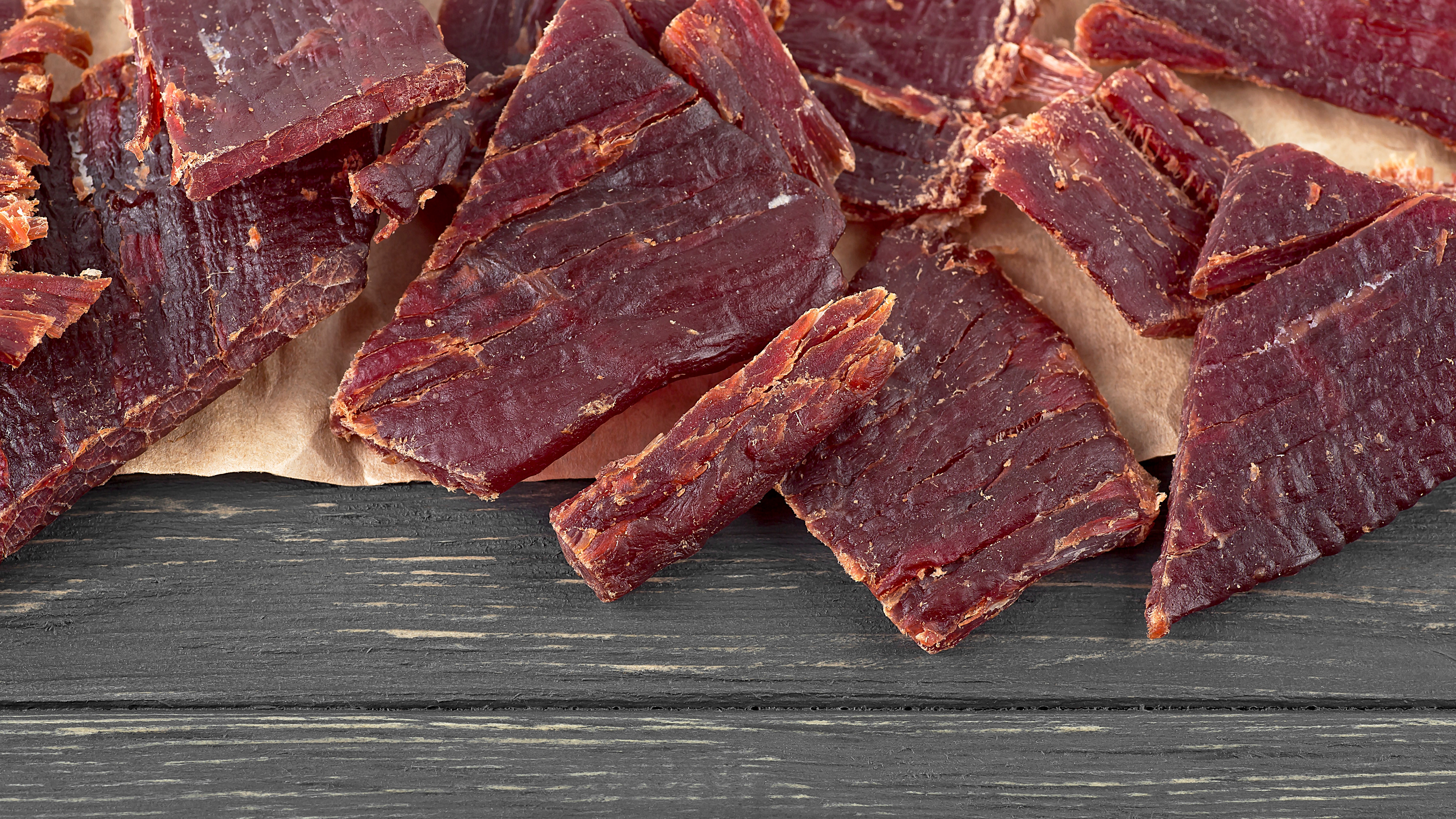
4. Don't overdo the food
No, not you personally – you need plenty of fuel when you're cycling all day – but there's no need to carry a week's worth of provisions unless you're embarking on an ultra bikepacking event with strict rules against it, or riding out somewhere truly isolated. Instead, just take what you'll need until you reach the next place where you can restock your supplies.
It's a good idea to take energy-dense snacks like jerky and fruit leather to snack on while you ride, and you can make these yourself in advance. Nuts are also an excellent choice, and it's hard to beat good old trail mix.
If you've bought packaged food, unwrapping it and putting it into a Ziploc bag can save you a little extra weight and space.
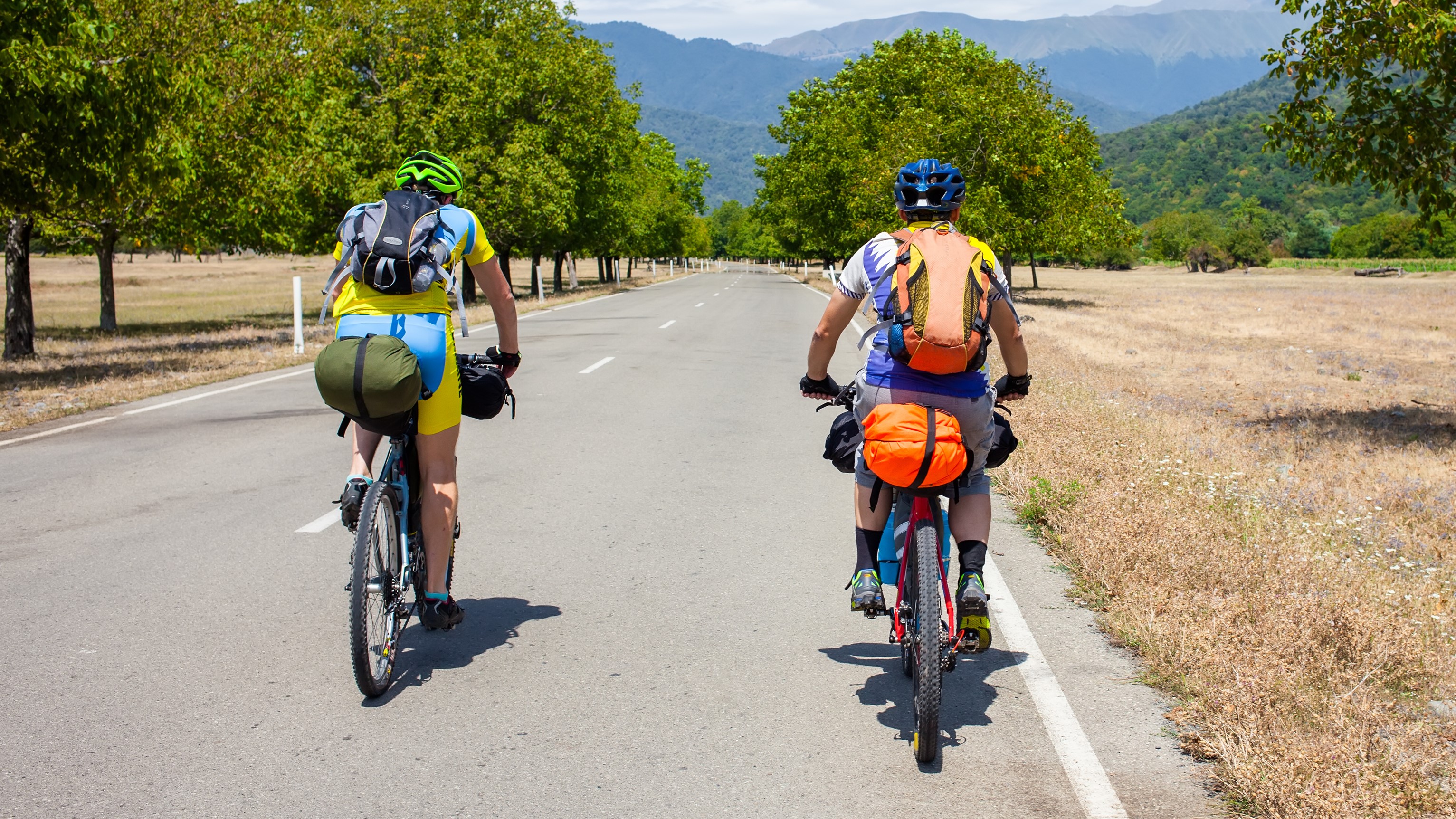
5. Share the load
Bikepacking with a buddy means many of the bulkier items can be shared. For example, you only need one camping stove, camping coffee maker, power bank, and maybe only one tent unless you're opting for bivies instead. You'll only need one bottle of soap, and you can take turns cooking and washing up so you've got more time to rest your weary legs at the end of a long day's riding. You'll have company too, so there's no need to take anything for entertainment.
This article is part of Advnture's Bikepacking Week 2023 (running from Monday 22 to Sunday 28 May), our ultimate guide to adventuring on two wheels including essential advice, gear, and features to help you plan the perfect expedition.

Cat is Homes Editor at TechRadar and former editor of Advnture. She's been a journalist for 15 years, and cut her teeth on magazines before moving online. She helps readers choose the right tech for their home, get the best deals, and do more with their new devices.
